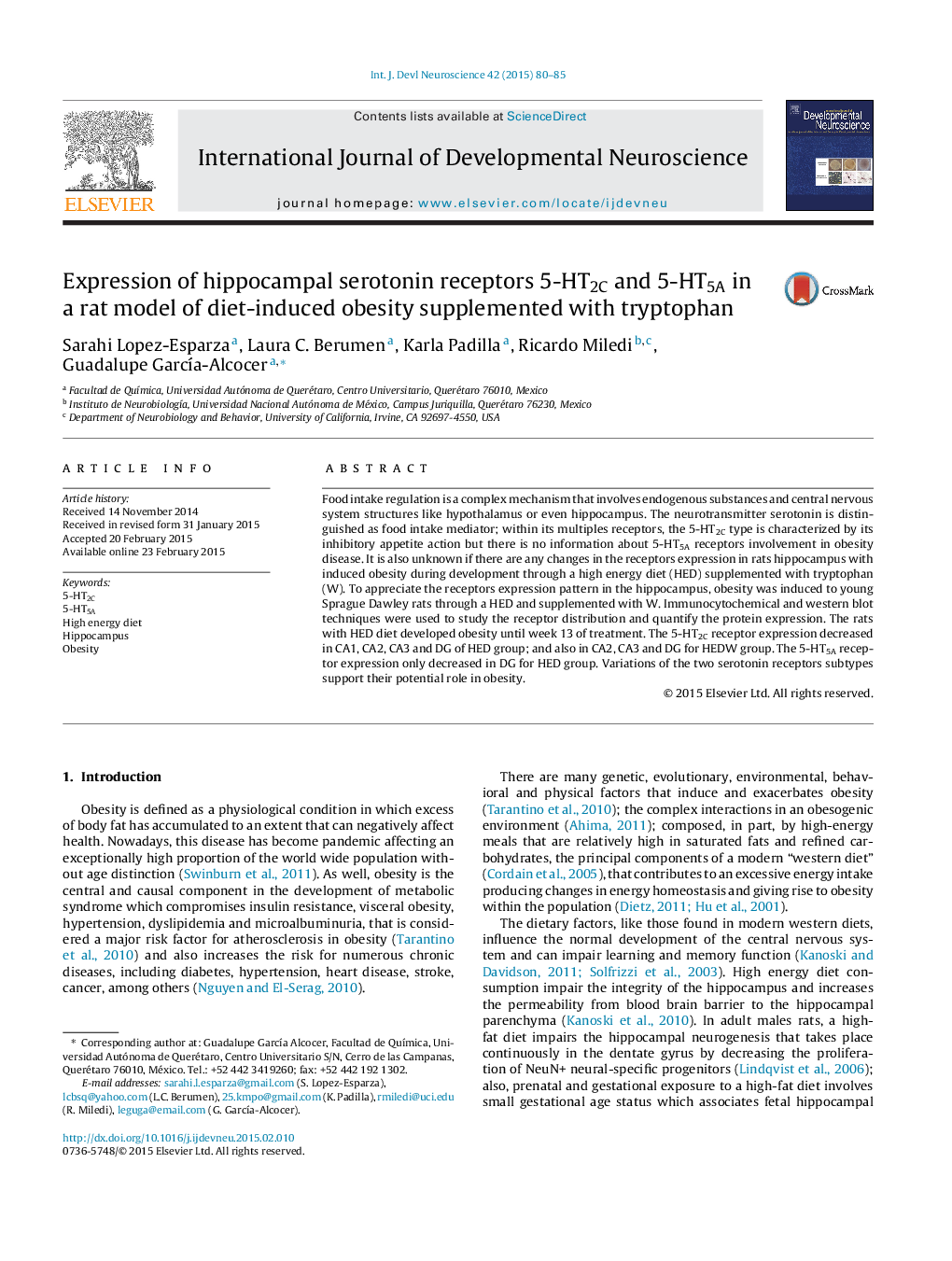| Article ID | Journal | Published Year | Pages | File Type |
|---|---|---|---|---|
| 2785878 | International Journal of Developmental Neuroscience | 2015 | 6 Pages |
•A high energy diet during development induce obesity in rats.•A high energy diet supplemented with tryptophan does not induce obesity in rats.•The expression of 5-HT2C receptor in hippocampus decreases with a high energy diet.•The expression of 5-HT5A receptor in dentate gyrus decreases with a high energy diet.
Food intake regulation is a complex mechanism that involves endogenous substances and central nervous system structures like hypothalamus or even hippocampus. The neurotransmitter serotonin is distinguished as food intake mediator; within its multiples receptors, the 5-HT2C type is characterized by its inhibitory appetite action but there is no information about 5-HT5A receptors involvement in obesity disease. It is also unknown if there are any changes in the receptors expression in rats hippocampus with induced obesity during development through a high energy diet (HED) supplemented with tryptophan (W). To appreciate the receptors expression pattern in the hippocampus, obesity was induced to young Sprague Dawley rats through a HED and supplemented with W. Immunocytochemical and western blot techniques were used to study the receptor distribution and quantify the protein expression. The rats with HED diet developed obesity until week 13 of treatment. The 5-HT2C receptor expression decreased in CA1, CA2, CA3 and DG of HED group; and also in CA2, CA3 and DG for HEDW group. The 5-HT5A receptor expression only decreased in DG for HED group. Variations of the two serotonin receptors subtypes support their potential role in obesity.
